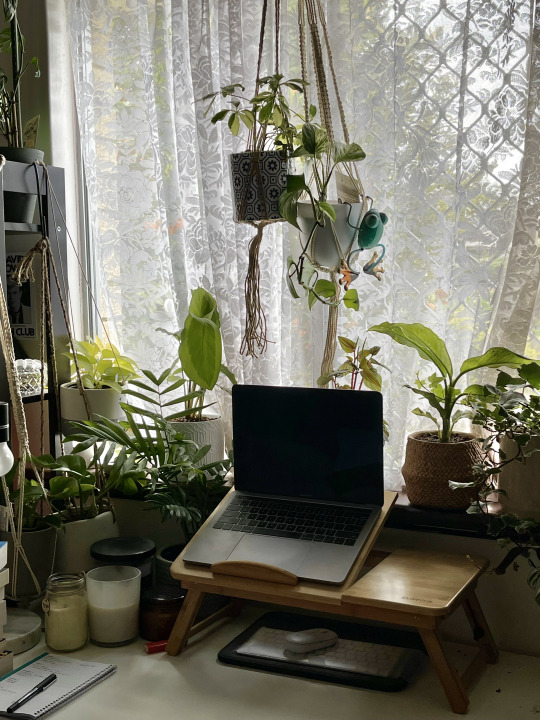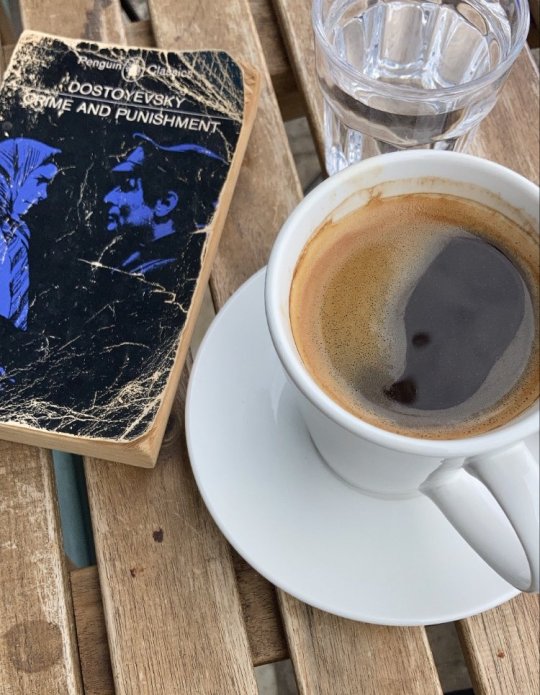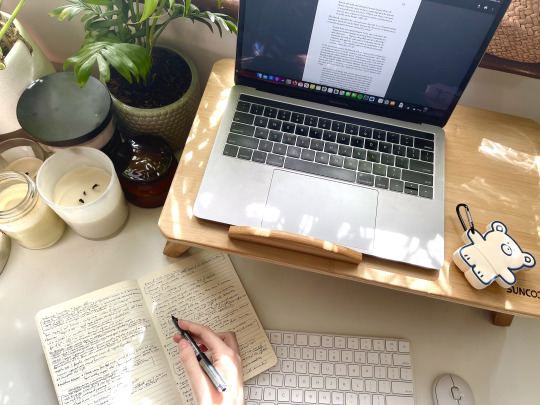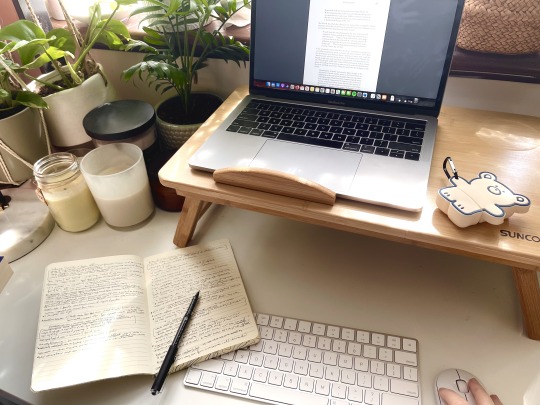Text
norwegian word of the day

å uglese
(imp.) uglese
(pres.) ugleser
(past) ugleså
(pres. perf.) har uglesett
(pres. part) ugleseende
(past part. sing.) uglesett
(past. part. plur./def.) uglesett
v. to dislike, to look askance
Jeg følte meg uglesett. / I felt looked askance at.
Note: This word literally means "to owl see" or "to owl look".
(photo was found here)
23 notes
·
View notes
Text
09.09.23 Life Update!
It has been a very long time since I updated this blog but I would like to start using it again so ill start with a quick update on my life and what's going on. The short of it is I still here and I am still learning!
two years ago I moved to Norway (again) to do my masters degree which I completed this past June! although I have been back here for 2 years, studying and working part time and life in general took up 99% of my time so learning [actively] Norwegian took quite a long pause - especially in the last 6 months where I was writing my thesis
I have at least one more year here where I hope to find a full time job! I am dedicating most of my time to Norwegian and the rest to applying for jobs
I am currently going through a breakup which has played a large role in my capacity or lack thereof in the past couple of months. I say this to say that for now I will no longer be learning Serbian because right now my main motivation no longer exists. I hope one day I can come back to it and I hope it won't be too painful but for now I have other things to focus on and thats okay.
this week I have recorded short videos (about 4 minutes) every day just talking about whatever I feel like
I also started making flash cards again focusing on the "625 most used words" - I think its been quite helpful so far as in a way it feels like im "starting over" even though that is far from the truth
I went to a language cafe today for the first time in a longggg time and probably had the easiest time speaking in comparison to times before!
my next post will hopefully be more comprehensive in what im doing and what my goals are that way I can start using this blog regularly again which is also a big part of my learning process
thanks for reading!
#im really sorry for the people who followed me for Serbian but im really happy that so many people are also interested in the language#its such a beautiful language. I really hope one day to revisit it again#norwegian#langblr#norsk#serbisk#language learning
3 notes
·
View notes
Text
Can you explain this gap in your blog history
81K notes
·
View notes
Note
Hello! I hope you’re doing well! I was wondering if you could give me some advice when it comes to furthering my language learning. I’ve been learning Norwegian on Duolingo for almost 5 years now but I feel like I’ve barely made any progress into actually learning the language. I’ve seen you mention that Duolingo isn’t the best way to learn a language, just on its own. What more can I be doing to actually learn Norwegian? I appreciate any insight you might be able to give. Thank you!
Hi there!
I actually think Norwegian Duo's not that bad, especially compared to other courses. It got me to A2 level without my really using any other resources! But of course, A2 is still only the top of beginner level, and from thereon out it's pretty ineffective on its own (although I still used it even at B2 level as a way to refresh vocab I'd forgotten or just do a little practice every day when I didn't have the time or energy to do anything else).
There are a lot of different ways you can study Norwegian. Here are some things I did (it's an essay lmao I'm so sorry):
1) Listen to Norwegian radio. You'll probably think I'm mad when you first try it because you'll probably understand very little other than the odd word here and there, but I promise it gets easier and you'll get used to the rhythm of the language in a way Duolingo doesn't prepare you for. Try to shadow the speakers (repeat what they say just after they say it. You don't have to know the words they're actually saying; just approximate the phonemes and the melody and the stress patterns. I promise you your pronunciation is gonna get SO good)
2) Take to Youtube. Check my resources list here for some links to channels that teach Norwegian.
3) Norwegian podcasts! I made a list of some beginner/intermediate-friendly ones (check the link in point 2). The plus with podcasts is you can slow the speed down to half-speed too. Again, don't be discouraged if it's difficult at first; just focus on the rhythm and stress of the language
4) Norwegian TV. You're gonna struggle at first but you need to struggle to improve, so don't be discouraged even if several months pass without you feeling like there's any improvement. Intermediate level sucks I'm afraid. Some shows I like that don't require a VPN (as of the time I'm posting this) are Fra bølle til bestevenn (it's got dogs in it), Hva feiler det deg (game show where normal people with internet compete against doctors to guess a patient's diagnosis), 113 (documentary following paramedics in Trondheim - try not to cry at the dialects), Klassequizen (quiz show with 10th graders, pretty A2/B1-friendly), Side Om Side (popular sitcom, sometimes the second-hand embarrassment kills me but mostly it's pretty funny) and Superkrim (did you know that crime stories around Easter time are a Thing in Norway? They make a new season of this one every year but it's accessible year-round, and the language is a lot simpler than a lot of shows, and it's pretty fun and a bit silly)
Note: subtitles are in Norwegian only, and half the time they match the nuance but not the actual words being said. I recommend trying to listen without them first, then listen with them, then listen without them again and see if you can catch a few more words.
5) Textbooks, if that's your jam. I recommend The Mystery Of Nils (you can jump straight to book 2: Mysteriet om Nils if you think you're ready. It's a bit of a jump but no point wasting money/time on something that you won't enjoy) and Norwegian Tutor (from the Teach Yourself series. The first few chapters will seem pretty basic but it's great at explaining nuances and prepositions in later chapters).
6) Read things in Norwegian. You can get short stories for beginner/intermediate level online, as well as read news articles (even if you can't read the whole article, just try the first paragraph). When I was about A2 level I would print things out and go through them just translating them, highlighting new words, words I'd encountered before but couldn't remember, words I could work out from context, particular grammar patterns and words I couldn't figure out and needed the help of a native speaker to work out.
7) Follow Norwegian accounts on social media. Here's a list I made earlier.
8) If you have some extra cash, investing in an italki tutor can be helpful. I've had lessons with a number of tutors so feel free to send me a message if you want help deciding which one to go with.
9) Keep a journal in Norwegian. Look up words you don't know and write them in a different colour. Maybe try to use words you learned that day and write them in a different colour too (even if by using them you're literally just writing "jeg lærte ordet «______» i dag. Det betyr ______")
10) You can also try creative writing. I started out by writing fiction largely in English but with Norwegian dialogue. I then moved on to writing short articles and then essays, then short stories and fan fiction.
11) You can try apps like HiNative and HelloTalk to find native speakers for language exchange. If you only know English though it might be difficult to find people because Norwegians typically speak really good English and aren't looking to learn/practice.
12) Listen to Norwegian music. Get on spotify and search "norsk (music genre of your choice)" and find some songs you like. Listen to them and pay attention to the lyrics. Then find the lyrics online and listen with the lyrics. Then try to translate the lyrics on your own. Finally, look up someone else's translation and see how close they are. Then try to learn the song and visualise meaning it with your whole heart as you sing along.
13) Practise speaking to yourself. It feels super awkward when you first start, but I always manage to get into the flow pretty quickly. You can have GT in front of you so you can look up things if you need to, or you can just write down words you don't know/couldn't think of as you go along, then look them up once you're done (I prefer this method; having GT in front of you encourages your brain to be lazy and not try to actively recall the information you need). Not sure what to write? Try my Speaking In 20 Challenge prompts.
14) Flashcards. I put this one last because really flashcards are only useful as a supplement to learning through other methods. They help to keep vocab fresh in your mind until you see it in context again (and it's the seeing words in context that's gonna cement the meaning in your brain. I've never heard anyone say "oh, I know that word because it was in my flashcard deck that I reviewed every night before bed", but I hear people say things like "oh, I know that obscure word because I watched cooking shows in my TL and the host said it aaaall the time" or "it's in a line from one of my favourite songs" a LOT).
Okay, that's it, essay over 😅 Hope I gave you some ideas! Best of luck with your Norwegian-learning journey!
25 notes
·
View notes
Text
If you’re learning a language seriously with the intention of using it long term and making it a part of your life you need to let go of the idea that it’s something you can just get over with and rip off like a band aid. Anyone that tells you that you can be fluent in three months or less is probably trying to sell you something.
This is gonna be a several months or years long project. And you’re not stupid. You’ll feel stupid. A lot. But you’re not stupid.
321 notes
·
View notes
Text

en menstruasjonssyklus - menstruation cycle
å menstruere - to menstruate
en mens - a menstruasjon
menses - period
(et) blod - blood
å blø - to bleed
eggløsning - ovulation
en tampong - a tampon
et bind - a pad
en/ei mensentruse - period underwear
en menskopp - menstrual cup
en/ei varmeflaske - hot water bottle
en smertestillende tablett - a painkiller
en krampe - a cramp
en sjokolade - a chocolate
20 notes
·
View notes
Text
Mini Speaking Challenge
14.06.22 [day 2/15: research and drilling]
i decided to review the sounds of the alphabet and tonems ( in general) for good measure (watched a video 2x)
at this point in my learning i can hear the difference between tonem 1 & 2 but i am not sure if i am always actually pronouncing them. also its another thing entirely to know when each applies to what word....but im working on it! (watched a video 1x)
practiced 15 tongue twisters to help with pronunciation - an article written by the school i took a class with
had a lot of trouble with "Fisker'n Finn fisket fersk fisk forrige fredag"
"Lille snille Pernille griller piller på Nilles grill, mens lille Ville triller Pernilles snille krokodille som spiller trekkspill" was by far the silliest
had a great time laughing at myself because half of these things make no sense but of course that's the point
the article reminded me that tongue twisters are a great way to warm up before speaking, so i think this is something i will add to my everyday learning - just to get my mouth moving
2 notes
·
View notes
Text
Mini Speaking Challenge
13.06.22 [day 1/15: free speaking]
it has been a very long time since the last time i was on tumblr and a just as long time since i actively* sat down to practice norwegian! i felt just okay while speaking today (re: what i did this morning and my language goals for this summer) but i really need to review vocabulary and start actively learning new words again.
one specific goal: aside from speaking more in general, i would like to make a lot less mistakes with prepositions specifically 'til/for'!!
looking forward to the rest of the challenge this month and also just being more active on here in general! see you again tomorrow :)
6 notes
·
View notes
Photo

Mini Speaking Challenge!
My Norwegian tutor’s away for the next two weeks (boo) and I’m left without a lot of opportunities for speaking practice. So! I’ve come up with a mini speaking challenge. If anyone wants to join me, feel free!
Official start date: Monday 13th June (I’m actually starting today because it’s the start of my two weeks without my tutor, but I’ll post everything a week late so it feels like I’m doing the challenge with you!) Of course you can join late or do this any time! It’s 15 days long, so it will end on Monday 27th June.
To take part:
Do the daily tasks
Upload or don’t upload the recording - it’s up to you! (You don’t even have to record yourself if you don’t want to, but it can be useful!)
If you do post the recording, let people know if you want feedback/corrections or not
Make a short summary of what you did/how it went/how you felt
Use the hashtag #langblrminispeakingchallenge
Like and leave kind/encouraging comments on other people’s posts
Remember that the rules are more like guidelines, and you should absolutely do what works for you!
The Daily Tasks
Day One: Free Speaking
Introduce yourself or talk about your day or maybe some thoughts you have. Just go with the flow. This day is for you to see how you feel! Write down how you felt while speaking and what areas you think you need to work on. Then, set yourself at least one specific goal to focus on (e.g. improve my pronunciation of X sound, learn to differentiate between sounds X & Y, stop making X grammar mistake.) My suggestion is to pick 1-2 sounds, 1 specific grammar point or 10-20 words you want to learn (or a combination, of course). Try to refrain from setting lots of goals as this will be overwhelming!
Day Two: Research & Drilling
Try to find information about the sound, grammar or vocabulary you struggle with most. (If there are multiple things, you can work on multiple things, but it’s a good idea to start by focusing on just one or two.) Find/come up with some tongue twisters/minimal pairs to practise that sound or write some sentences with your target grammar/vocabulary, then practise saying them aloud.
Day Three: Describe a picture
Find a picture on any website (unsplash, pixabay, pinterest, social media, news websites etc). Try to describe it: say what’s in the picture, what you think it shows, whether you like it and why (not). If you’re a beginner, look up some words and phrases such as “there is…” and “I can see…” and practise saying them. You can describe multiple pictures if you like.
Day Four: Drills
Practise the drills/sentences you came up with on day 2. Maybe come up with some new ones too if you want!
Day Five: Parroting
Watch a short video or listen to a podcast in your target language. Try to parrot back phrases, words or even just sounds (depending on your level). Pay attention to intonation and rhythm in the sentences!
Day Six: Retell a Story
Think of a book/TV show/film and try to summarise the story or the premise. If you’re still a beginner, learn some book/tv/film genres and say which ones you like/dislike.
Day Seven: Drills
Practise the drills/sentences you came up with on days 2 and 4. Remember to reflect on your progress!
Day Eight: Free Speaking
Talk about your day/week/thoughts/any topic you want. Reflect on your progress so far (there might not be much/any at this point, and that’s okay!) and your goals. Make some adjustments to your goals if you want (e.g. add some new words into the mix, focus on a different grammar point or focus on a different sound).
Day Nine: Read aloud
Find an article, a book or some simple beginner sentences from a textbook/website and read aloud. Make a list of new words/difficult words to pronounce/examples of grammar you often mess up.
Day Ten: Drills
Practice the drills/sentences you came up with previously. Alternatively, practice the words/sentences from the list you made yesterday.
Day Eleven: Would You Rather
Go to this website. Translate the Would You Rather prompts given, then say which you’d rather do and why. You can do this as many times as you want! If you’re still a beginner, look up useful phrases or verbs for giving opinions (e.g. “I think…” “I believe…” “In my opinion…”), or just try to translate the prompts.
Day Twelve: Practice mouth shapes
Watch a video of a native speaker speaking your target language (choosing something that’s your level will make this activity easier!) Pay close attention to the person’s mouth. Video yourself saying some of the same words/sentences. Watch both videos back and compare your mouth shape. Repeat the exercise, trying to mimic the native speaker’s mouth shape.
Day Thirteen: Drills
Practice the drills/sentences you came up with previously. Reflect on your progress and come up with new drills/sentences if necessary.
Day Fourteen: Choose a Topic
Talk about one of the topics from the Speaking in 20 challenge week 2 (or any of the other weeks, or choose your own topic). If you’re still a beginner, learn some vocabulary/simple sentences related to the topic and repeat them aloud. If you’re more advanced, try to talk about one (or more!) of the prompts.
Day Fifteen: Reflect
Talk about the challenge (if you’re advanced enough - otherwise just write some thoughts in your preferred language), reflecting on your progress and general thoughts/feelings. Were the exercises helpful? What did you struggle with most? Did you make progress in the areas you wanted to? What else could you do in future to help you progress?
167 notes
·
View notes
Text
12.01.22 life update
TL;DR I visited serbia for the first time for 10 days and absolutely loved it. Also I live, study and work in norway now! I took one norwegian (language) class a few months ago but as of late, have not done too much active learning. I am hoping to keep using this blog to help me with my ambitious summer goals.
it has been a very very long time since i have used this blog and tbh i am not sure what the future of it will be. i have been on tumblr for over 10 years now so I dont see myself leaving anytime soon but I just need to find a better way to use this blog. anyways just wanted to give a small life update and let it be known that when it comes to languages, i am in fact stil kicking.
i just recently came back from spending 10 days in belgrade and i had an amazing time. i am sad that i could not communicate with my partner's parents very much (they don't speak english) but they were so kind. i am so happy to have finally met them and all of my partner's friends that i have heard so so much about. i ate so much good food, fell in love with the architecture, and had so many good conversations there. i can't wait to go back again and i am even more motivated (if that's possible) to learn serbian after being surrounded by it for a week. beautiful people, beautiful language, i really enjoyed my time there.
on a more personal note, i will be starting my second semester of grad school. i moved to norway btw haha surprise so yes 2nd semester of grad school in norway is done. i also just got a job which is crazy to think about. i have been unemployed for about 2 years and now i am working at an environmental consultancy in norway! in terms of norwegian, i have been doing a little bit everyday but these past few months, especially the end of the 1st semester, i feel like i really neglected (active) learning. so here we are again at the start of the new year with a bunch of very serious goals in mind but i really am sick of being in this intermediate phase....i have some pretty high goals for the summer but they are realistic. i just need to organize my time better and i think with this first semester behind me and my new job, i will be able to structure my time better. at least i hope so lol.
8 notes
·
View notes
Text
Intermediate Norwegian: the placement of ‘ikke’ in subordinate clauses
If you’ve been learning Norwegian for a little while, you’ll probably have come across sentences (or tried to write sentences that a native speaker corrected) that turn your knowledge of word order a bit sideways. I’m talking about sentences like:
Hvis du ikke er sulten, må du ikke spiser noe. (If you aren’t hungry, you don’t have to eat anything)
Han fikk jobben til tross for at han ikke hadde de nødvendige ferdighetene (He got the job despite the fact he didn’t have the necessary skills)
Hun er en slags jente som ikke bryr seg om hva andre synes om henne (She’s the kind of girl who doesn’t care about what others think about her)
You’ve been told that ikke comes after the verb, and yet here are sentences where that’s blatantly not true. So, what’s going on?
Keep reading
164 notes
·
View notes
Text
unique ways to learn foreign languages




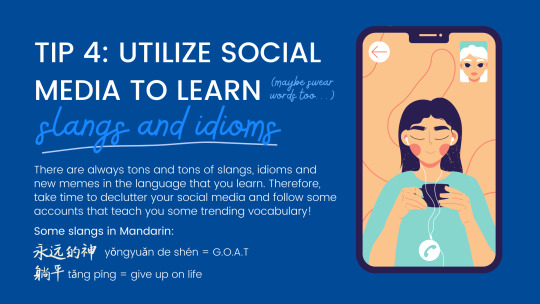

Hi it’s werelivingarts and I’m back with some unique tips on learning foreign languages. I love learning Mandarin and Korean, and my foreign friends absolutely love it when I try to speak with them. ✨
Learning languages is tough but really fun. Remember that you need to set goals, such as by the end of today, I will finish studying the alphabet, not the simple “getting fluent” goal. It’s okay when things you first say are gibberish because you will certainly get better by learning your mistakes.
Here are just some extra weird ways to help you learn:
● Use region-specfic social media (Weibo for Chinese, Kakao Talk for Korean, Tuenti for Spanish, etc)
● Narrate in other languages as you commute (e.g. the mysterious man who wears brown cap-toe Oxfords just get his cats turn left and is now entering the supermarket)
● Read newspaper and magazine
● Change your phone language
● Get help from your native speaker friends
● Take notes in other languages
P/s: Do you have any useful methods to learn foreign languages? If yes, please share it down here 🤩⬇️
3K notes
·
View notes
Text
maybe it's better to learn a language slowly. maybe we're too obsessed with things happening as quickly as possible. maybe it's more beautiful to dedicate years of your life to a language and have it grow with you as you journey through life rather than "become fluent in one week!". idk just a thought.
16K notes
·
View notes









